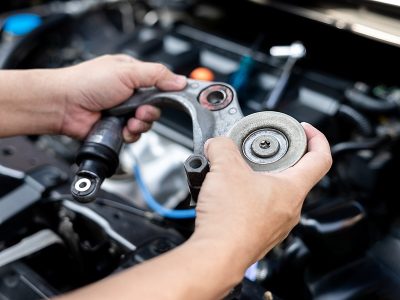Your car is more than just a mode of transportation; it’s an extension of your freedom and a key component of your daily life. Whether commuting to work, embarking on road trips, or running errands, a reliable car is essential.
However, ensuring peak performance and longevity requires more than just filling the gas tank. This guide explores essential car maintenance tips for every driver, focusing on the importance of regular oil changes and the potential benefits of exploring salvage yards for certain parts.
Let’s get started!
Essential Maintenance Tips for Every Driver
By understanding your car’s needs and implementing these tips, you can navigate the road with confidence and peace of mind.
1. The Importance of Regular Oil Changes:
Oil is the lifeblood of your car’s engine. It reduces friction between moving parts, prevents wear and tear, and helps maintain optimal engine temperature.
Regular oil changes, following the manufacturer’s recommended schedule, ensure clean oil lubricates your engine efficiently. Neglecting oil changes can lead to sludge buildup within the engine, increasing friction, and ultimately leading to costly repairs.
2. Understanding the Oil Change Process:
An oil change is a relatively straightforward process that can be performed at home with the right tools and knowledge. However, many drivers prefer the convenience and expertise offered by qualified technicians at an automotive service center.
A typical oil change involves draining the old oil from the engine, replacing the oil filter, and refilling the engine with fresh oil of the recommended viscosity.
3. Considering High-Mileage Oil:
As your car accumulates miles, the engine’s internal components begin to wear. Using high-mileage oil can be beneficial for cars with over 75,000 miles.
High-mileage oil is formulated with specific additives designed to help reduce leaks and seal gaps between worn components, potentially contributing to improved engine performance and reduced oil consumption.
4. Exploring Salvage Yards for Replacement Parts:
While oil changes are essential for preventative maintenance, there may be times when your car requires a replacement part. Before heading to the dealership for parts, consider exploring salvage yards. Salvage yards, also known as junkyards, sell used car parts from vehicles that have been totaled or are no longer operational.
These yards can be a treasure trove for finding genuine OEM (Original Equipment Manufacturer) parts at a fraction of the cost of new ones. However, visiting a salvage yard requires a certain level of knowledge and selectivity.
5. Tips for Finding the Right Parts at a Salvage Yard:
When searching for parts at a salvage yard, it’s crucial to know the specific part you need and its compatibility with your car model. Having your car’s year, make, and model readily available will streamline the search process. Carefully inspect the part before purchasing it, focusing on any visible damage or signs of wear.
Some salvage yards offer warranties on used parts, providing additional peace of mind. While not all parts are suitable for purchase from a salvage yard, these resources can be valuable for finding specific components at a significant cost savings, especially for older vehicles.








Comments